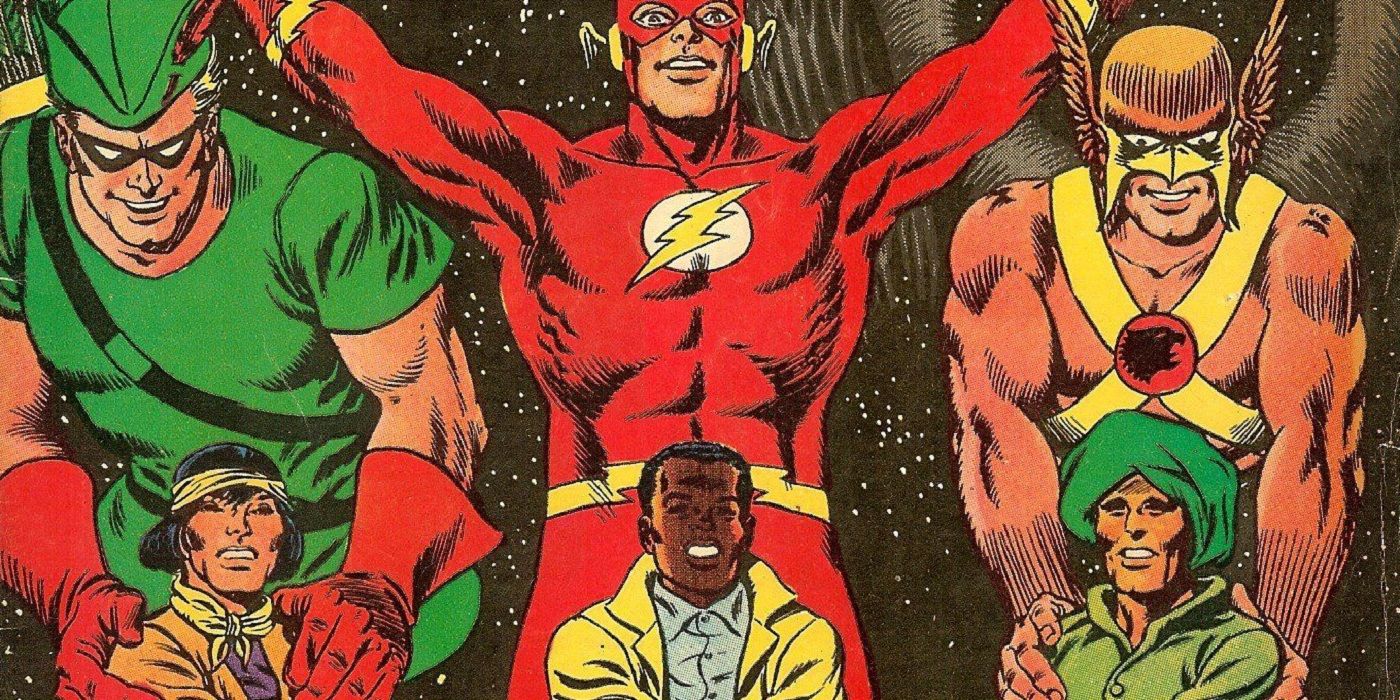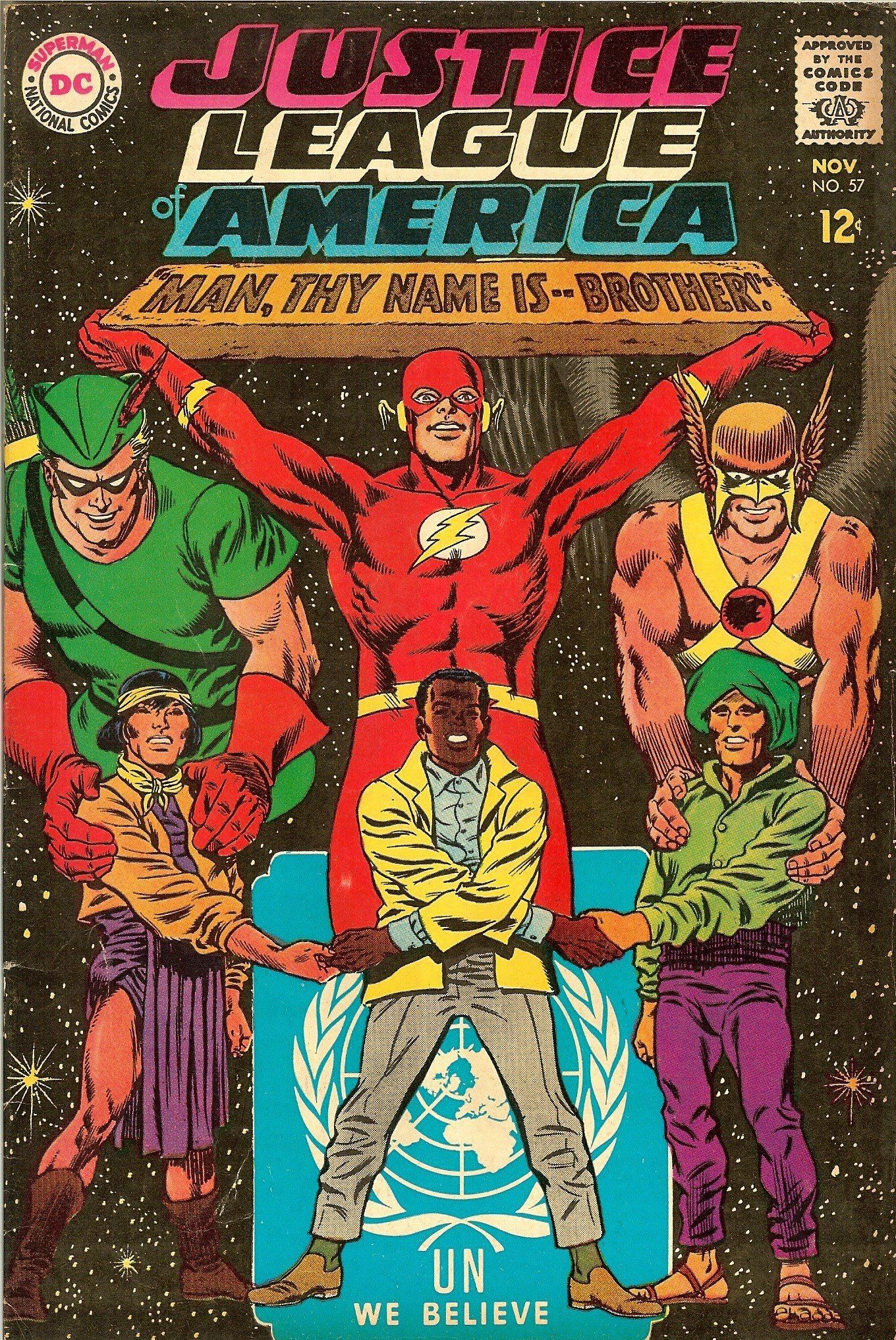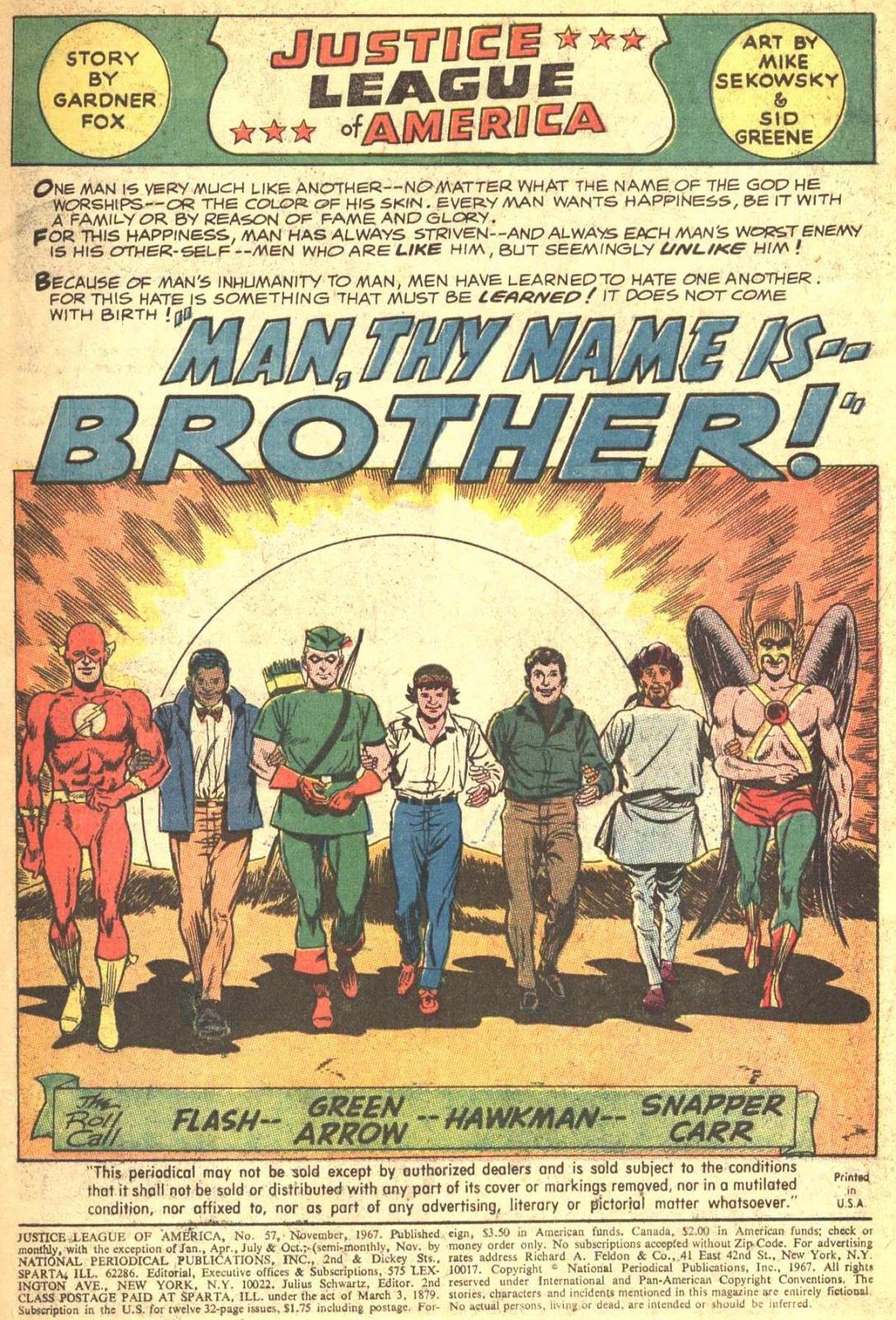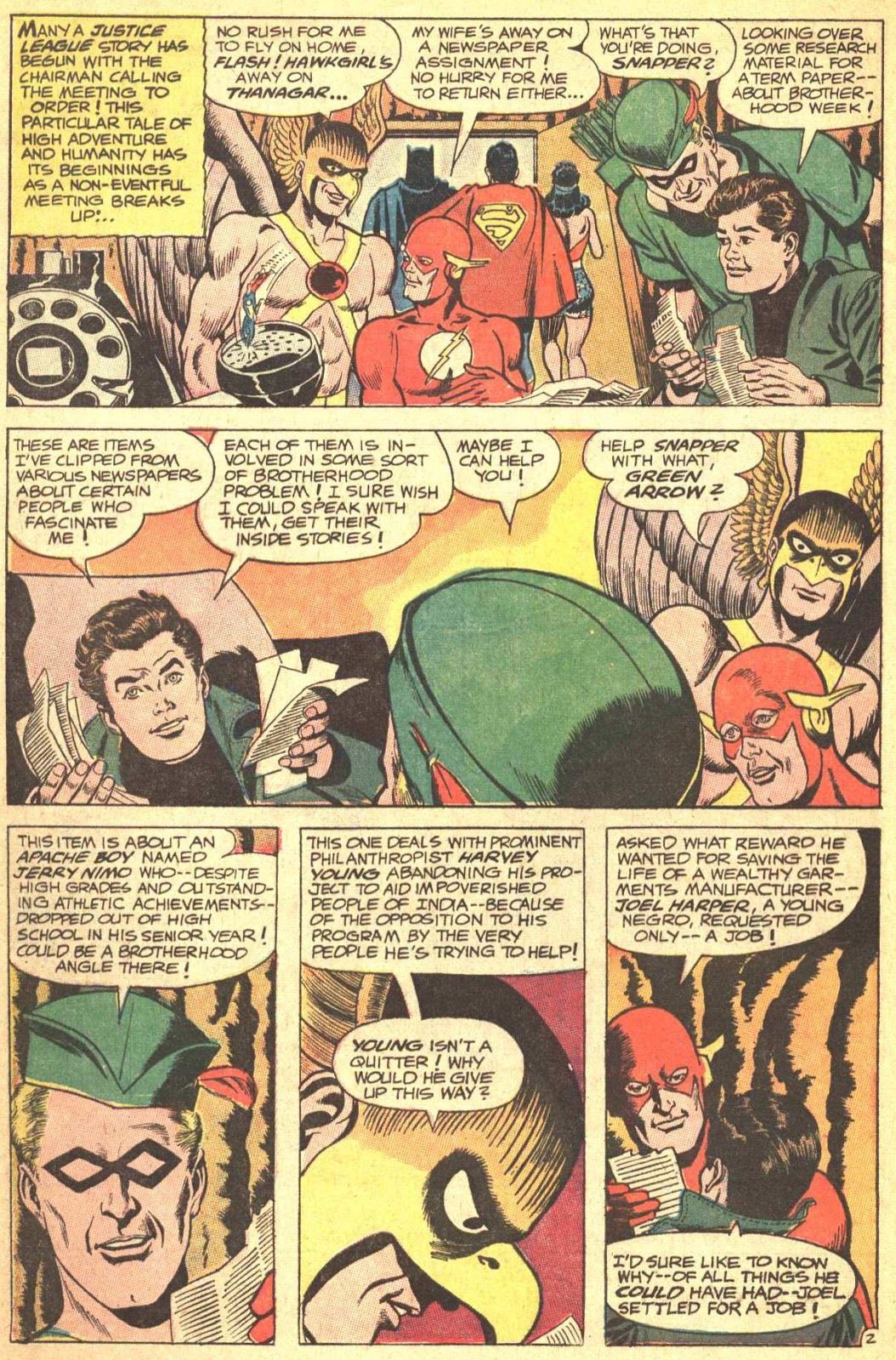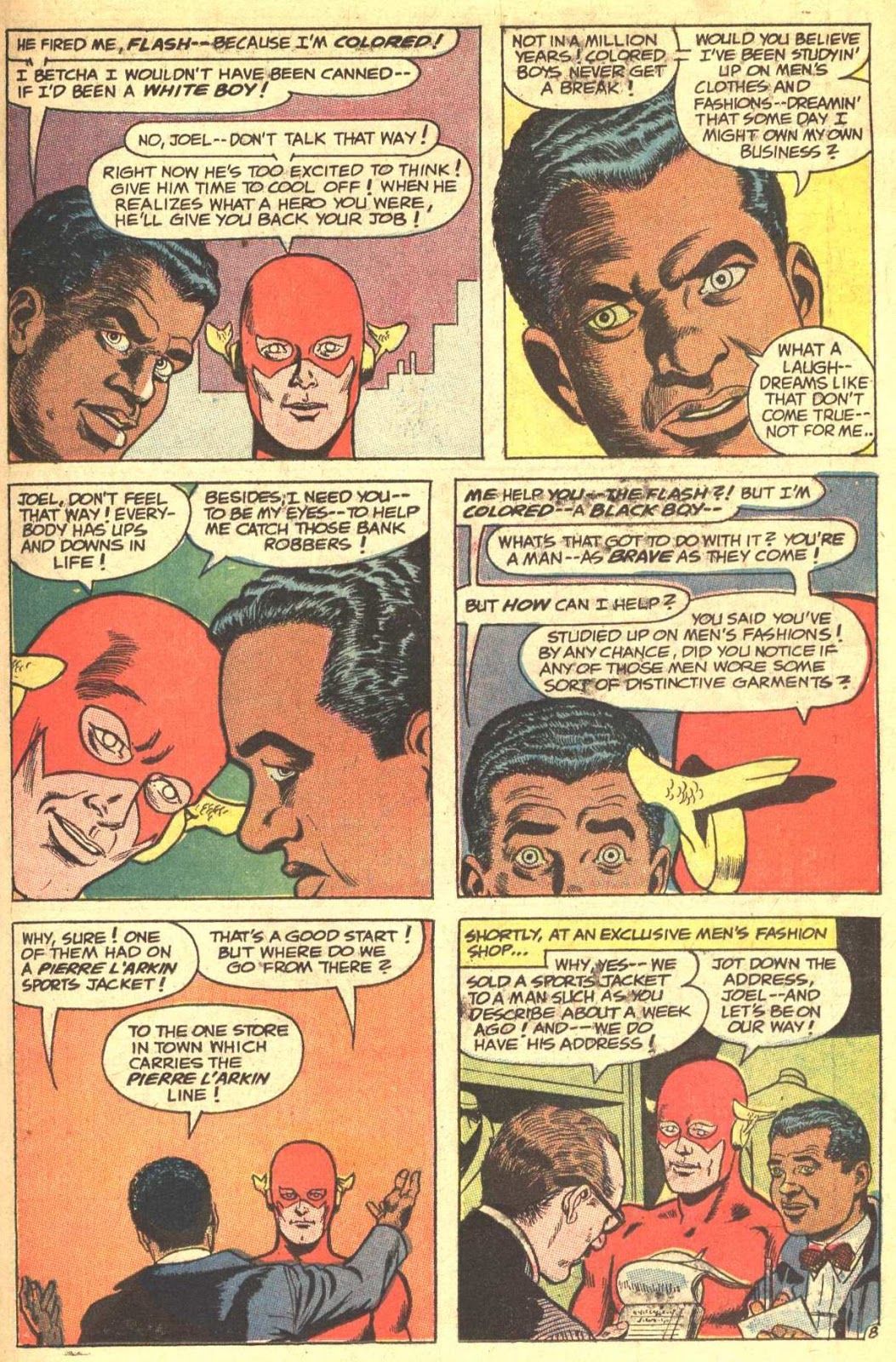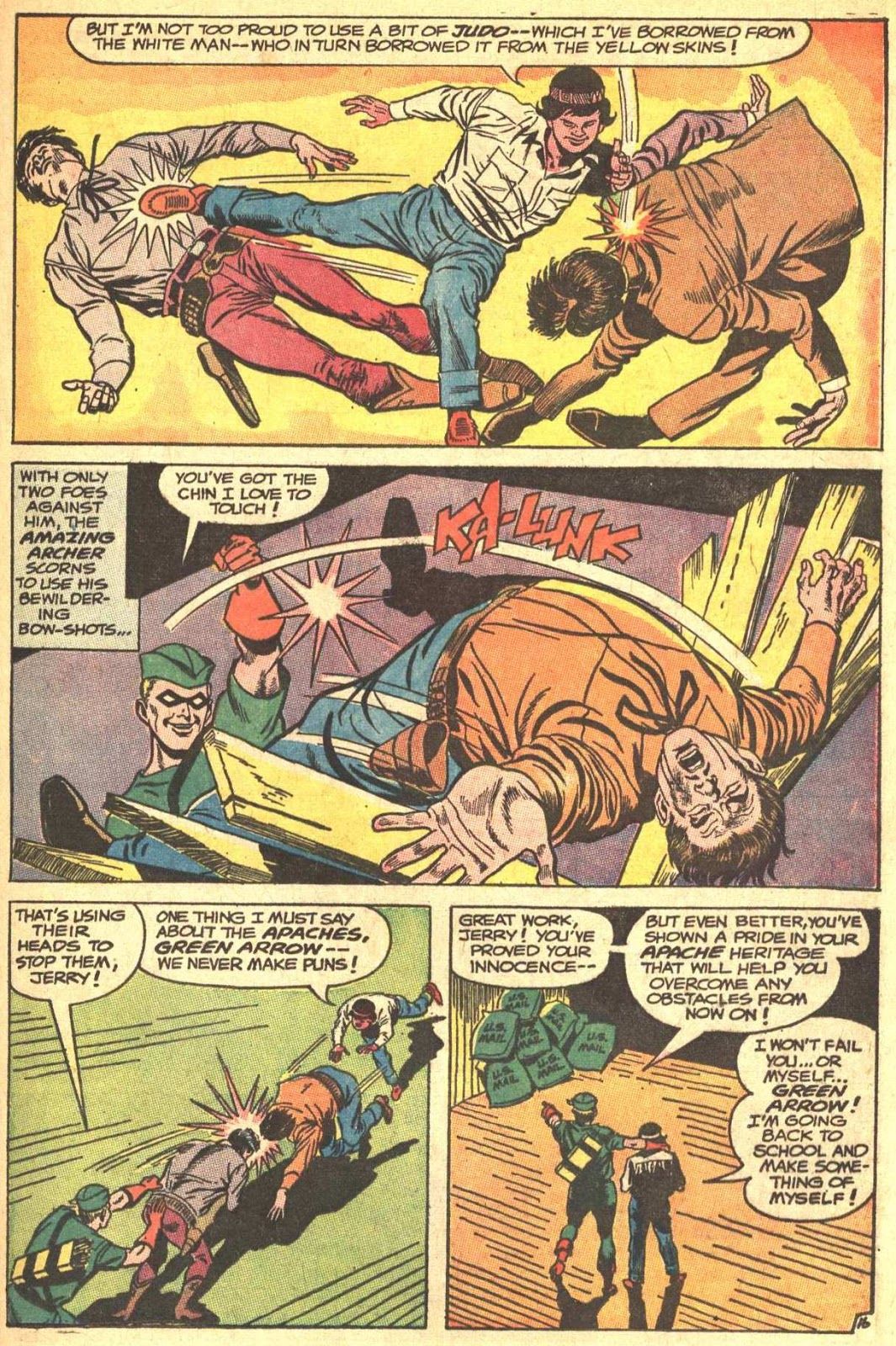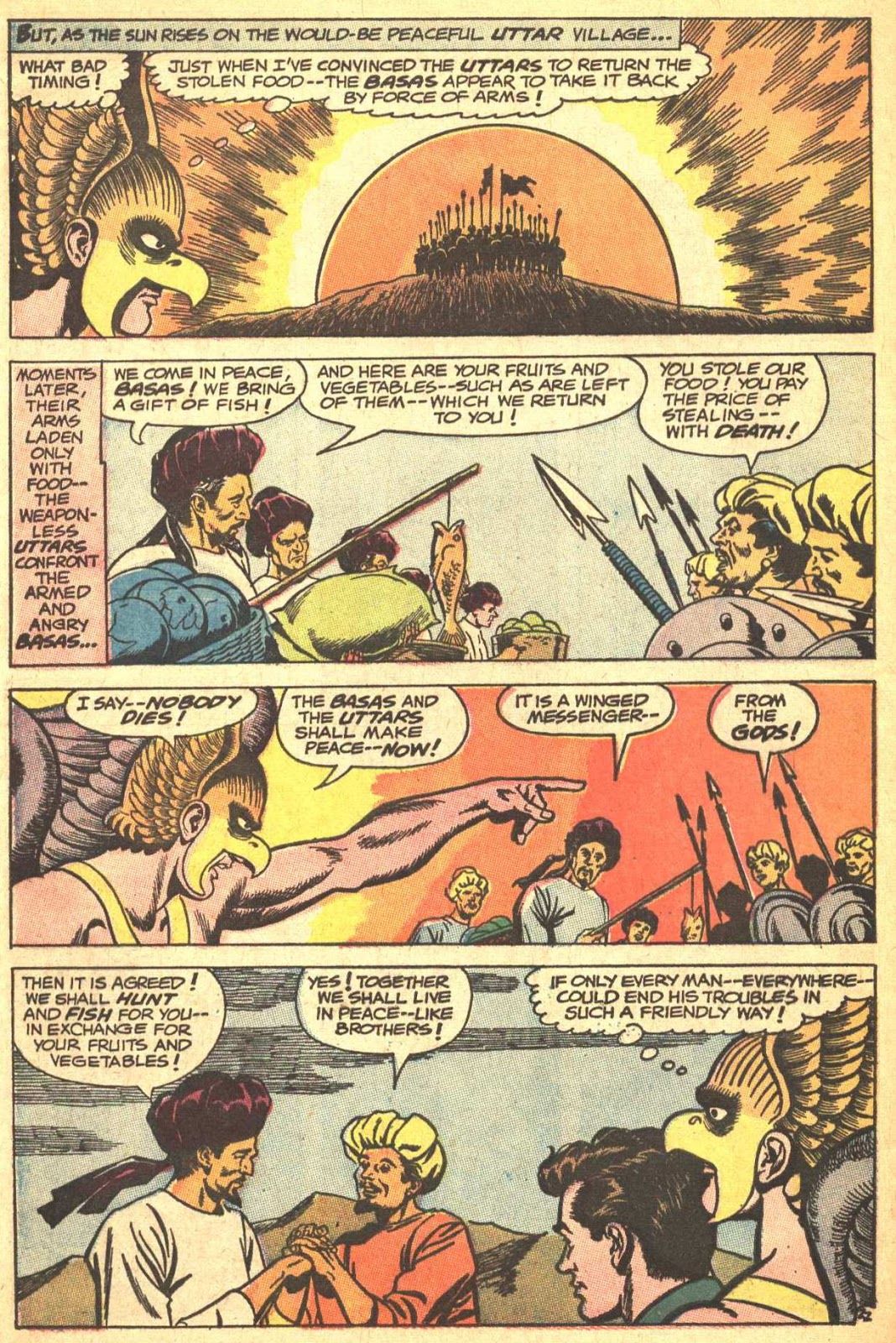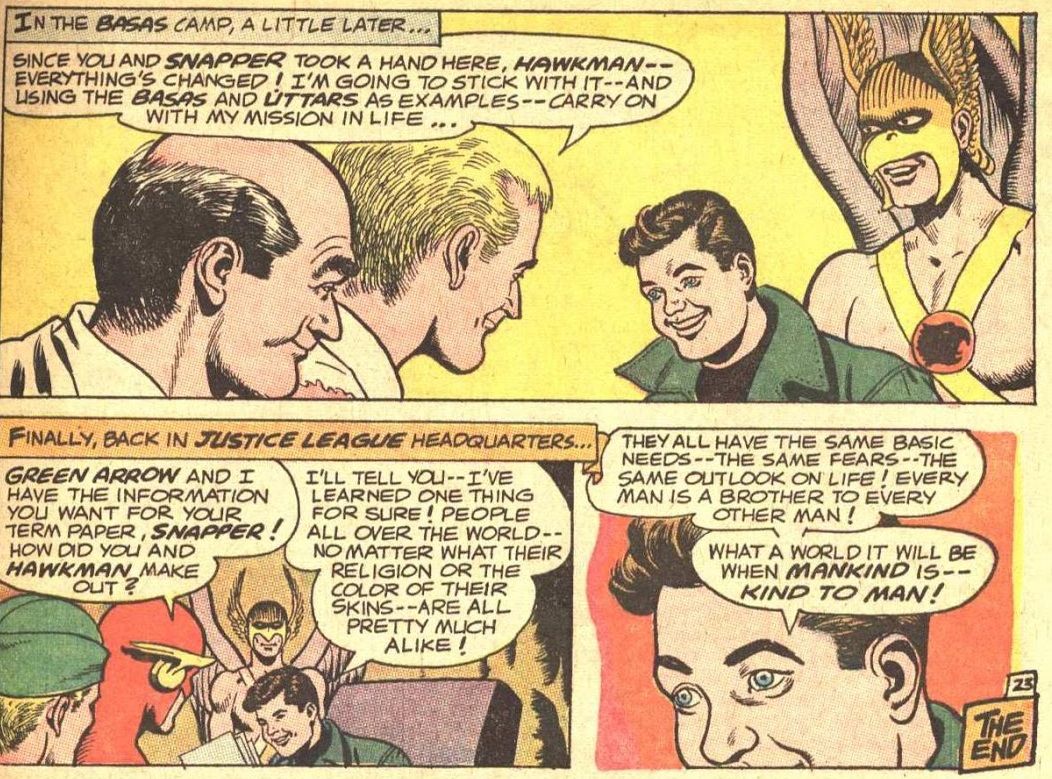This is a feature called "A Political World," where we spotlight 20th Century comic book stories that came out back when comic books were not political at all, unlike comic books nowadays. Today, we look at a Justice League story about the brotherhood of man!
Now, all joking aside, it is fair to say that there really WAS a period in comic book history where stories involving politics were frowned upon. This was the time right after the institution of the Comics Code Authority and every comic book company was really scared about offending anyone. There were still the occasional example (we'll spotlight a VERY famous example soon enough) but National Comics (now DC Comics) was particularly noteworthy in their willingness to not make waves of any kind during that late 1950s/early 1960s period.
By the end of the decade, though, a new generation of comic book writers had taken hold of DC Comics and with the success of Marvel Comics, there was an influx of political stories. These stories, though, were mostly written by that new generation. Therefore, it was unusual when one of the old guard did one of these superhero stories. One such example, as suggested by reader James T., was Justice League of America #57 by Gardner Fox, Mike Sekowsky and Sid Greene.
(And yes, cover artist Carmine Infantino made an unusual choice with how he decided to draw the Flash's legs on that cover)
The comic book came out in 1967, so it WAS towards the tail end of the decade, when Marvel Comics was already making waves, but this was the creative team that had launched the Justice League of America back in 1960 and so Fox and Sewkosky was certainly not who you would expect to drop a story like this and yet here it was (Fox DID do a few earlier "social" issues, like when the Justice League visited some disabled children and took on their various ailments, but nothing quite like this).
The story gets the main message across right there on the front page - everyone is the same...
As Robert Morse would put it, there's a benevolent brotherhood of man!
The set-up for the issue is that after the weekly Justice League meeting broke up, three of the heroes stayed behind to help Snapper Carr with a class assignment about "brotherhood problems"...
The first story involves Flash visiting the young African-American hero who just wanted a job. The Flash comes across young Joel trying to stop some crooks by shoving them with the clothes push cart that he was pushing. They end up getting away and Joel is blamed for getting the clothes on his push cart dirty and is fired from his job. He complains to Flash that this wouldn't have happened it he had been white...
In the end, Flash uses Joel's knowledge about clothing labels to catch the crooks. Flash then convinces Joel to go to Central City to train to be a police officer! It's kind of a weird result, since Joel just told us how much he wanted to work in fashion, but, well, I dunno, there ya go.
That leaves us two more visits!
Page 2: [valnet-url-page page=2 paginated=0 text='Green Arrow and Hawkman travel the world']
Green Arrow visits the Native American teenager, who is being framed for a crime because no one trusts "Dirty 'Paches."
Along the way, the young teen, Jerry, expresses his concern over the prejudices that he deals with, but Green Arrow tells him that he has to look past that and embrace his heritage. They clear Jerry's name together...
Hawkman and Snapper travel to India, where a philanthropist had helped a tribe learn new irrigation techniques. However, once the food was growing well, a rival tribe tried to steal from them. Hawkman and Snapper went to go teach the other tribe a lesson and they return with a peace offering, but then the original tribe (who blamed the philanthropist, which led to him wanting to quit doing good in the world) showed up to attack the tribe that had stole from them!
It's maybe not the most eloquent lesson of peace, but for DC Comics in 1967, this was pretty impressive.
Thanks to James for the suggestion!
Okay, folks, I'm sure you have suggestions for good political storylines from the "good old days when comic books weren't political," so drop me suggestions at brianc@cbr.com!

